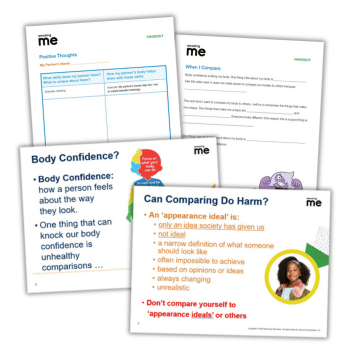The A-Z of Surviving Your Second Year of Teaching

From aiming to learn to catching enough ZZZs, Steph Caswell has some alphabetised advice for your second year in teaching

- by Steph Caswell
- Coach, author and former deputy headteacher Visit website

Congratulations! You’ve dropped that NQT label and it’s time to head out into the world of teaching.
Before you panic and begin your resignation letter, read through these tips so that you can take your next steps confidently.
Aim to learn
Observe experienced teachers doing what they do best. Take tips and strategies and give them a try. Strive to continue this practice until you retire; there are always things you can learn, to help you improve.
Behaviour management
Unless you have this nailed, the children will not learn effectively. Based on your experiences last year, decide what your strategies will be moving forward and stick with them. Praise goes a long way, but so do boundaries.
CPD
Training courses can give you a new understanding of a subject or a way to teach it. Even if you simply observe excellent practice in another classroom, it all adds up to improving your teaching.
Differentiation
If you’re not differentiating to match the needs of pupils, you should ask someone to give you a good kick up the backside. It’s essential to progress, so jolly well do it!
Expect to make mistakes
They help us learn and develop. Use them as a springboard to improvement. Expect to feel a bit disappointed when things don’t go well, but use it is an opportunity to reflect, rather than give up.
Find your style
Take the teaching style that worked best for you last year and refine it. Don’t try to be the teacher next door, be you.
Grow your practice
Strive to give yourself different experiences – maybe it’s a new way of delivering science lessons or alternative activities for SPAG. Push yourself out of your comfort zone and you may be pleasantly surprised at what you achieve.
Have confidence
Take your pride at completing your NQT year and turn it into confidence. Use the things that have gone well and build on them this year.
Inclusion
Aim to gain a further understanding of additional needs by seeking advice and asking questions. No question is silly when it comes to SEND.
Just ask
Becoming an experienced teacher is a learning curve. Don’t be afraid to ask questions on your journey, to both refine your knowledge and understanding, as well as develop your skill set.
Keep the pace up
Ah, pace. Just when you think you’re BFFs, it swoops in and disrupts your lessons. Children do well with tight time structures, so use them in every lesson to ensure attainment and progress.
Laugh
 Most laughter within a school occurs in the staffroom, so try to get in there each day; a bad morning can be quickly forgotten by chatting with colleagues.
Most laughter within a school occurs in the staffroom, so try to get in there each day; a bad morning can be quickly forgotten by chatting with colleagues.
Mental health
Be aware if teaching begins to take its toll on you. Your mental health is of the upmost importance, so if things become difficult, speak up and get some help. Don’t let it get out of control and consume you.
New class
 You’ll never forget your NQT class; they’ll hold a special place in your heart for many reasons. However, try not to constantly compare your new class to your old one. It’s a different cohort with different dynamics, so embrace the change and start again.
You’ll never forget your NQT class; they’ll hold a special place in your heart for many reasons. However, try not to constantly compare your new class to your old one. It’s a different cohort with different dynamics, so embrace the change and start again.
Own the room
Your classroom is yours. You are in control and need to set expectations for the children who learn within it. You don’t enter their home and be disrespectful, so don’t let them enter your classroom and do the same.
Perfection
It doesn’t exist. Strive to build your skills and teach to the best of your ability, but don’t strive for perfection. You’ll never get there and will exhaust yourself on your quest.
Questioning
The types of questions you ask in the classroom go a long way to improving children’s progress over time. Keep practising different types, particularly open-ended ones, so that children have to explain their ideas further.
Reflection
Aim to reflect daily on what went well and what didn’t. Use this to enhance your practice. By doing so, you’ll consistently improve and gain confidence.
Subject leadership
As an RQT, you may be asked to take on more responsibility. Ensure you have a clear understanding of the role and embrace it, even if it’s a subject that you don’t know much about. Now’s the time to learn!
Time management
Block out your diary with important tasks to ensure they get done. Now that you have ‘lost’ your NQT time, this is very important. Don’t let your workload run away from you. Keep on top of your marking and seek support if you need help.
Understanding parents
Listen to parents with the aim of understanding and resolving any issues they have. Smile and be approachable, even if you don’t feel like it. Building good relationships makes things sustainable in the long run.
Vision
Every school has a vision, but do you have an individual one? Do you know what you want to achieve? Setting your own vision can keep you focused and spur you on to try new things.
Work/life balance
Find time to do the things you love and do them often. Set yourself a time limit if you’re working at home, to ensure that you don’t let the job take over your life.
Xcellence in all efforts
Facing a new teaching challenge? No one is going to expect you to get it right first time, but strive to give your very best effort and you may be surprised at the results.
You are you
Aim to be a better teacher than the one you were yesterday, rather than better than others around you. Focus on building and improving your own strengths and talents, and let other people build theirs.
Zzz
Sleep! You’ll be the best teacher you can be if you get a good night’s sleep. Don’t underestimate its importance. Facing each day as refreshed as possible enables you to tackle anything that comes your way.










